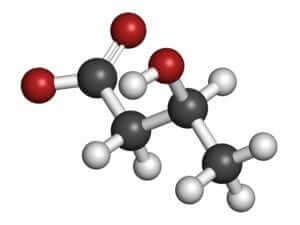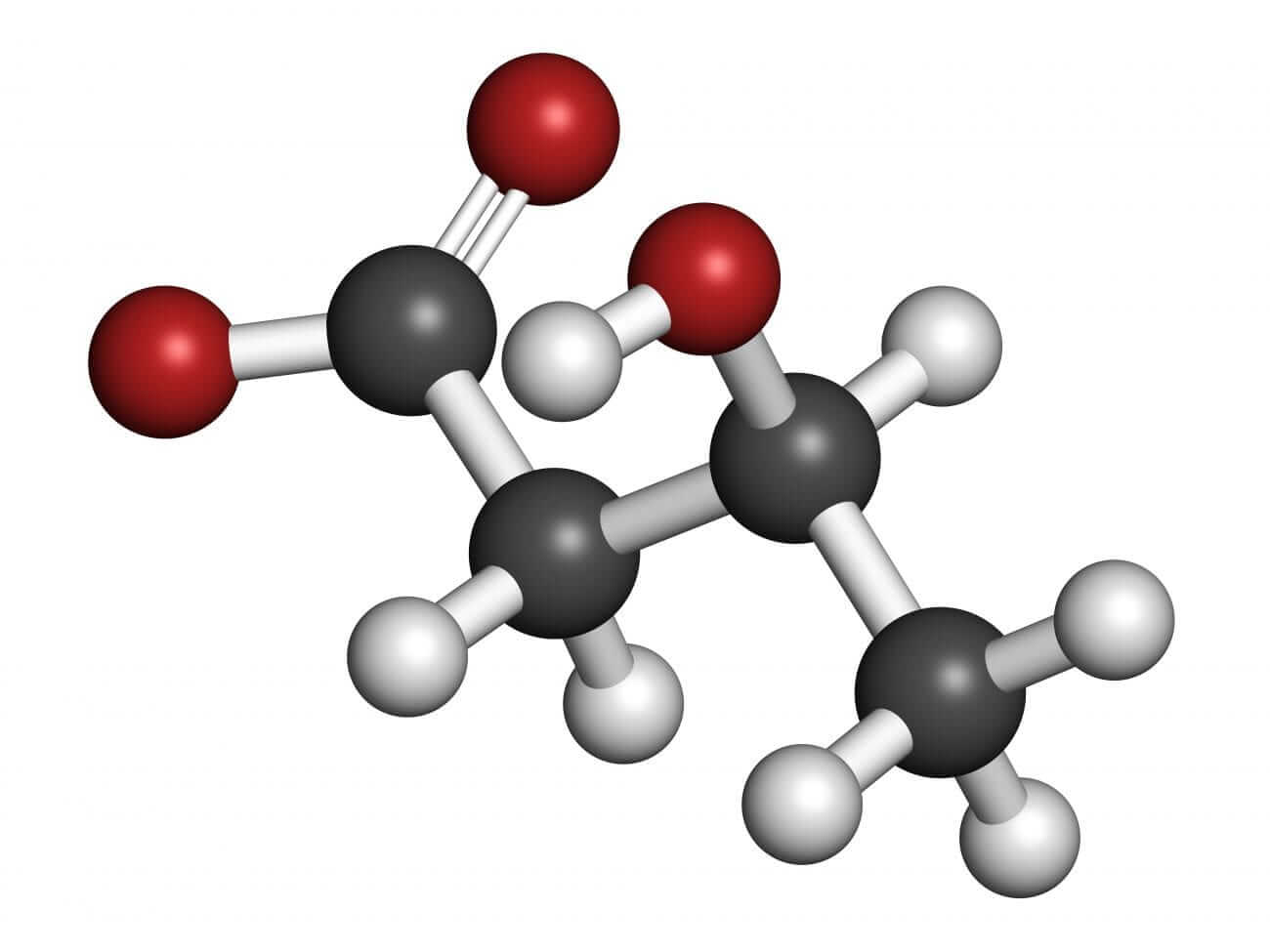Ketosis, the ketogenic diet, and exogenous ketones have become quite popular terms in human research and medicine, with significant impacts on health. However, one has to raise the question as to how these ketones are working, how they are benefiting health, and can they be of use in the horse? Well, despite many ‘critics’ giving their input and little research available, I’ll give you my clinical thoughts when it comes to horses, and not just perceived metabolic horses.

When it comes to ketones and the ketogenic approach, for most the end goal is to lose weight. While this is possible, there is much more to the story and with that clinical impact on health. Ketones are energy molecules, produced via the metabolism of specific fats in the body and created in the liver. They are used by the body as an energy source, not just physical energy, but cellular energy, like a fuel to power an engine.
In reality, the body can use two sources of energy for fuel, being sugar molecules or ketones. For most of us and our horses, our bodies are primarily using sugars or carbohydrates for our fuel source and ATP production, which is okay as it is natural. Even under these circumstances, the body does produce ketones, but in very low amounts, which may or may not be used for energy. In these situations, where carbohydrates are the primary source due to diet provisions, the body is trained in that direction and tends not to focus much on ketone generation as there is no need in the healthy horse or person. It is like having a radio that can function off of both AC and DC power. If batteries are installed, but yet it is plugged into the wall outlet, it will choose to use the wall power (AC) instead of the battery (DC). Yet, if the AC power is absent for some reason, the radio will switch over the battery or DC power.
Pretty simple and most of us can relate to that, and the body functions in a similar way on a basic level, having the choice of carbohydrates (AC power) or ketones (DC power). The problem that lies within our body and our current society, is that for most of us, we have reduced ability to produce those ketones or DC power, as our body has become very reliant upon sugars or AC power. The bigger issue here is that for many horses and people, despite having readily available carbohydrates, the body has started to lose the ability to utilize them properly. This borders on the concept of insulin resistance, as insulin is the molecule needed to help the body to use the carbohydrates or sugars.
Insulin Resistance in the Horse; Digging Deeper
This concept of insulin resistance is linked back to the process of inflammation in the body, which then alters cellular function, cellular receptors, and finally insulin capabilities. When the insulin is not functioning correctly, then sugar is not being shuttled into the cells for energy production. If this is not occurring, then cells begin to malfunction, like a radio that is losing power. Things slow down and bad things can happen. The exact causes of insulin resistance are many, stemming back to diet, stress, lifestyle, the digestive microbiome, and genetic factors. These all hold true for the horse as they do for humans, but we fail to recognize it and acknowledge it, waiting for research to pop up before we take action.
For most horse owners and veterinarians, we acknowledge that insulin resistance is present when insulin levels generally rise above 40 uIU/ml, seeing a normal range as being between 10-40 on average. While it is indeed true that a horse has insulin resistance if their level is 95 uIU/ml, we may be wise to look more closely at those horses in the ‘normal’ range of 20-40 uIU/ml. Why?
I have discussed the need to dig deeper into metabolic horses in another article, so I will not go into specifics and encourage you to take a look there for more information.
The bottom line, to me as a veterinarian and researcher, is that many horses are technically overweight based on body condition, and many of those same horses have health and lameness issues involving the foot, joints, and tendons. For the most part, if we test those horses for insulin resistance, their levels come back in the normal range and we dismiss it as a possibility. Despite this, most continue forward with issues in health and lameness. We might change their diet and ‘treat’ them like a metabolic horse, but again, most continue to have problems. I’ve been there, done that with countless horses in rehabilitation. I’ve struggled many times, but instead of throwing my hands up, I tend to ask questions and dig deeper.
On paper, most of these horses have perceived normal insulin values. However, many clinically healthy horses with no lameness and a very fit body condition have insulin values at the lower end of normal and sometimes below it, being in the range of 8-12 uIU/ml. That is a pretty big difference compared to a horse with a level of 25 uIU/ml that has clinical issues.
Well, long story short, I believe that many of those horses in the higher end range of ‘normal’ are actually metabolic horses with insulin resistance. Personally, I think the true normal range should be in the area of 8-20 uIU/ml. What’s the big deal? Well, for starters we are missing the diagnosis and thus not addressing the issue properly. Even if we address the issue with standard approaches, most continue to have issues in health and soundness.
So, what are we missing?? Ah…the concept of ketones!!
If we think about these horses, and I mean really think about them, all of their problems from health to lameness have to do with cellular function. The cells are not working correctly, whether if those are cells in the hoof capsule, tendons, joints, or the immune response. While it is true that nutrition is a key factor, due to the cells requiring nutrients to do their job, many of those horses are on a good plane of nutrition, and still fail to do well. We have to keep in mind that we can provide all of the substrates, such as nutrition, but the cells need to function correctly to promote healing and recovery.
If the horse in question has a low level or ‘sub-clinical’ evidence of insulin resistance, this could explain the problem. The cells are not functioning correctly due to this insulin resistance and they are not producing energy internally. While we can provide whole-foods and targeted herbs to support the process and digestive health, this repair approach takes time as time is what created it. This approach should be used in all cases, but in the more short-term, the cells are damaged and in need of a jump start essentially. We need to switch them from AC to DC power.
While we can alter the diet to encourage ketone generation in the horse, through use of a ketogenic approach and supplements like the Cur-OST EQ Keto Oil, for some the regimen does not work as it is also noted in humans. The body still fails to produce adequate ketones. If we can’t get that power source to switch, healing will happen with the right approach, but it could take time.
Exogenous ketones, in the form of beta-hydroxybutyrate, are a tool that can be used to bridge this gap in the horse, just as it is being used in humans. Through the use of a product such as Cur-OST EQ Keto BHB, we are providing straight ketones to the body with no need to wait for the body to produce them. We are supplying ketones in their pure form for the body to use, and it does use them!
What is interesting on the human side of medicine and research, is that they are finding that ketones are not just an energy source, but can impact inflammation, the digestive microbiome, and alter cellular signaling at distant pathways. The ketogenic approach has been used for years in children with diabetic conditions and cognitive issues including epilepsy. They are also finding tremendous benefit in cases of cancer, Alzheimer’s, Parkinson’s, and even diabetic neuropathy cases in people. Ketones are also being noted to be of extreme value in cases of anxiety and depression. Why??
Well, by providing a new energy source, cells begin to literally ‘awaken’ and start to function correctly, which is all a good thing. In all of those instances above, cells are not functioning properly and thus ‘disease’ becomes a problem. In cases of Alzheimer’s, researchers are noting that there appears to be insulin resistance present at the level of the brain, despite many of those patients not demonstrating insulin resistance throughout their body. In cancer, there is the Warburg effect, which connects cancer development with cellular metabolism, which involves energy production.
Hmmm. Could it be that our current lifestyles, stress, improper food choices and impaired digestive microbiome are all created a low level of insulin resistance in our bodies?? It would certainly explain the findings and usage of ketones in human research. And…if this is true, could the same thing be going on in the horse??
Personally, I think that it is. A high percentage of horses mirror their owners. The horses reflect their owner’s emotions, their lifestyle, and eating habits. They live lives of stress due to competition, training, stall or small paddock confinement, and use of processed feeds. Not too far of a stretch to say that insulin resistance is present in a high percentage of horse despite our lab testing telling us otherwise.
What have I found clinically? I discuss my clinical findings in more depth in the article mentioned above. Bottom line? A high percentage of the horses that we contend with in our facility are damaged on a mental and physical level. Many are fearful, over stressed, and literally exhausted mentally and physically. You can provide a good environment, but habits are hard to overcome. We provide whole foods and targeted herbs, which provide tremendous benefit and target the underlying cellular problem, which is inflammation, digestive health, and nutrient deprivation. This, however, is a long-term fix. It should be done and is done in all cases, but the cells in the short-term could use a pick me up for lack of a better word. Many can benefit with a short-term approach to stimulate those cells.
In our facility, we have experimented with exogenous ketones for quite some time, noting serum ketone levels and often reductions in insulin values with their usage. This was for research purposes, but more recently, we have implemented them in several horses for more long-term usage. The findings are pretty interesting.
In those horses, for the most part there are foot problems, with poor growth, poor quality growth and soles that lack proper callus formation. Others have ongoing tendon issues, failure to heal, and generalized soreness. These same horses are not metabolic by normal standards but have a higher ‘normal’ level of insulin. Interestingly, most of them have behavioral issues as well from aggression to anxiety with related vices.
Exogenous ketones were added to their supplement regimen of herbs, along with whole foods, dosed per the label twice daily for 6 weeks. During that time, energy levels increased physically. Behavioral issues became less noticeable and hoof growth/integrity became very obvious. Hmmm. Seems to be mirroring human research data regarding benefits from digestion to circulation and mental health. Does that then imply these horses were ‘insulin resistant’? I don’t know the answer to it, but all I can say is that their body appears to respond nicely to a new energy source on many levels.
To me, as a veterinarian and researcher, exogenous ketones can be very helpful and have become a part of our regimen for horses in rehabilitation. It is one more tool in my chest to help that horse to heal more completely. You must keep in mind that these ketones are simply providing a new energy source, helping the cells to function correctly. The underlying cause, being inflammatory changes on a cellular level, are still there and must be addressed. The herbs and whole foods are what creates the long-term results! The exogenous ketones just create a bridge from point A to point B. The goal would be to restart the body, re-energize the cells, and facilitate healing. Ideally, if all is put into place, the ketones would be a short-term solution, maybe for 1-3 months potentially, then gradually coming off and allowing the body to do its thing, if all has been provided for properly.
Exogenous ketones! There is much potential in the horse! They are a part of my personal supplement regimen everyday and a part of that regimen in our rehab horses. Supplementation with ketones is certainly something to keep in mind.
Try our Cur-OST EQ Keto BHB
Author: Tom Schell, D.V.M, CVCH, CHN



I wonder if a trial/test of healthy fecal matter with ideal bioms transferred into the horse’s colon would be a fast track to health as it seems to do with human trials.
“We have to keep in mind that we can provide all of the substrates, such as nutrition, but the cells need to function correctly to promote healing and recovery”